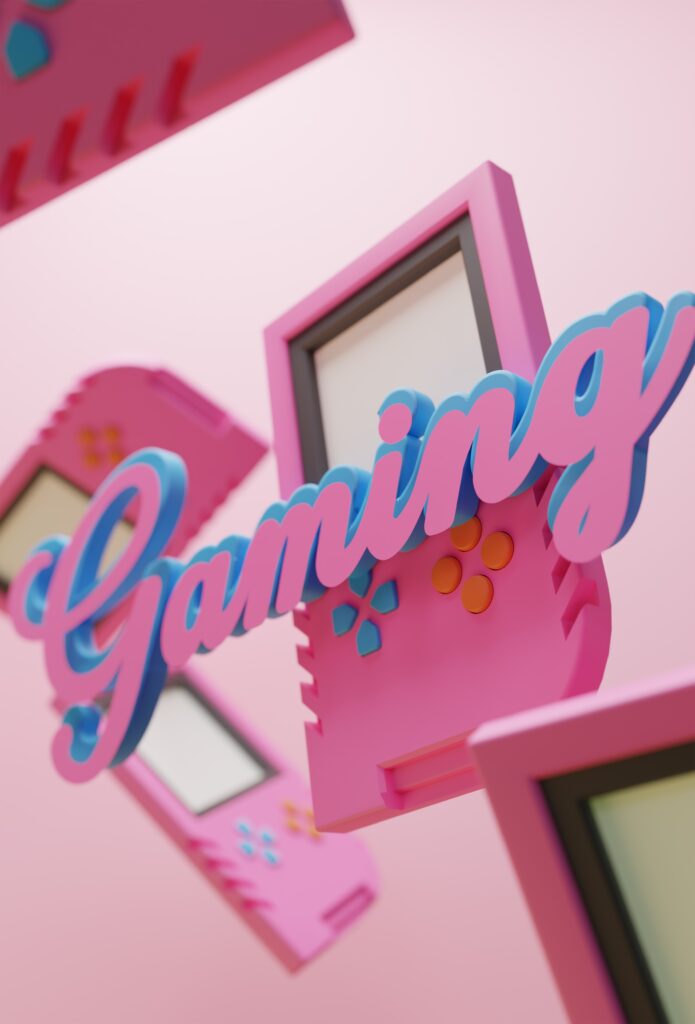What is Cross-Platform Gaming? The 5 Unbelievable Benefits
Introduction: Unraveling the Mysteries of Cross-Platform Gaming
If you’ve ever been in a heated debate about which gaming console is the best or found yourself envying players on another platform who have access to exclusive titles, then you’ve probably wished for a more unified gaming universe. Enter the phenomenon that’s rapidly changing the rules of the gaming world: cross-platform gaming. But what is cross-platform gaming, exactly, and why is it turning the industry on its head?
Whether you’re a seasoned gamer with a setup that rivals a spaceship’s control panel, or a newbie who’s just starting to dip your toes into the digital playground, this article aims to take you on a thrilling roller coaster ride into the ever-evolving universe of cross-platform gaming. We’ll demystify the intricate mechanics behind it, delve into its undeniable benefits, and even tackle some of the challenges it presents. So fasten your seatbelts, fellow gaming enthusiasts; you’re about to embark on an eye-opening journey that promises to redefine your understanding of what gaming can truly be.
What is Cross-Platform Gaming?
What is Cross-Platform Gaming: Definition and Explanation
You might’ve heard the term “cross-platform gaming” thrown around in gaming forums, during coffee break debates, or even in passing conversations among friends. But what does it mean, really? Cross-platform gaming is the knight in shining armor that breaks down the walls separating gamers on different platforms—think Xbox, PlayStation, PC, and even mobile devices. Imagine being able to jump into a Fortnite match with your friend who swears by their PlayStation while you’re on your trusty PC. It’s like being able to speak multiple languages; you can connect with a wider range of people in a way that would have been impossible otherwise.
The Big Picture
This groundbreaking feature isn’t just about throwing people from different platforms into a digital arena and letting them duke it out. It’s about creating a more inclusive and unified gaming ecosystem, one where the lines between different platforms blur, enabling gamers to connect in unprecedented ways. So, next time someone asks you, “What is cross-platform gaming?” think of it as the United Nations of gaming—bringing players from diverse backgrounds into a single, harmonious community.
What is Cross-Platform Gaming: How Does it Work?
The gears that move the cross-platform machine are intricate but fascinating. It’s not just a matter of snapping one’s fingers and—voilà—your PlayStation can now talk to a PC. It’s more complex than that, requiring significant efforts from both game developers and platform holders.
The Developer’s Role: Building the Bridge
Game developers are the architects behind the cross-platform dream. They have to code their games in a way that makes them accessible across multiple platforms. That means using specialized software, server structures, and coding languages that can be understood by different systems. It’s not an easy task by any means, but it’s vital to create that inclusive environment.
The Platform Holder’s Support: Laying the Foundation
Now, you can’t build a bridge without a solid foundation, can you? That’s where platform holders like Sony (PlayStation), Microsoft (Xbox), and others come in. To achieve seamless cross-platform gaming, these giants need to give their blessing and provide the technical support needed to integrate the systems. Sometimes this involves tweaking their own operating systems, or making deals that allow for the sharing of data between platforms.
Technology: The Invisible Glue
If you dig a little deeper, you’ll find a range of technologies like cloud computing, middleware software, and advanced networking protocols that work as the invisible glue holding the cross-platform world together. They ensure that your movements on an Xbox controller translate seamlessly into actions in a game that someone else might be playing on a PC.
What is Cross-Platform Gaming: A Symphony of Collaboration
So, what is cross-platform gaming, you ask? It’s a symphony of collaboration among developers, platform holders, and even the gamers themselves. It’s a brave new world of gaming that promises more inclusivity, a broader community, and above all, an unshackled gaming experience. As the technologies evolve, this trend is only going to get stronger, bringing a more unified and exciting gaming landscape for us all.

History of Cross-platform Gaming: A Journey Through Time
So, when did this incredible idea of cross-platform gaming come into the picture? Believe it or not, the roots go as far back as the early days of online gaming, particularly in the 1990s. Let’s get into our gaming time machine and revisit some classics, shall we?
The Humble Beginnings: Quake and Diablo
Games like “Quake” and “Diablo” were pioneers in allowing players on different platforms to face off in online arenas. However, let’s keep it real—back then, the experience was far from seamless. Connection issues, differing system capabilities, and other teething troubles were more common than health packs in a shooter game.
The Golden Era: Fortnite, Minecraft, and Rocket League
Fast forward to the modern era, and you’ve got games like “Fortnite,” “Minecraft,” and “Rocket League” making waves. The advent of these massively popular online multiplayer titles cranked up the volume on the demand for cross-platform capabilities. It’s no longer a niche request; it’s a rallying cry from the gaming community, and it has become nearly impossible for developers and platform holders to ignore.
A Pivotal Shift
Advancements in technology—think cloud computing and high-speed internet—have turned the dream into reality. But it’s not just about the tech; it’s also about a shift towards a more connected and social gaming experience. Nowadays, cross-platform gaming isn’t a bonus feature; it’s becoming an industry standard.
Benefits of Cross-platform Gaming: More Than Just Playing Nice
So, what’s in it for you and me? Apart from the obvious joy of being able to school your console-committed friend while you’re on a PC, there are some genuine benefits to cross-platform gaming that you might not have considered.
Say Hello to a More Social Gaming Experience
Firstly, it’s a friend-making (and keeping) machine. Remember the high school buddy who moved to another state but shares your love for gaming? With cross-platform functionality, geographical distances disappear.
An Expanded Player Base
The more, the merrier! A greater player base means shorter matchmaking times. Gone are the days when you’d have to wait forever to find someone to go toe-to-toe with you in your favorite game. Now, you can jump into the action almost immediately, thanks to a more robust player pool.
Fair Play and Thrilling Competition
Think you’re the best “Rocket League” player on the block? Prove it! Cross-platform gaming allows for a level playing field. Your skills shine, regardless of the platform you’re using, so competitions become even more intense and rewarding.
A Developer’s Goldmine
For the brains behind the games, this is like striking oil. Developers get to reach out to an audience that’s no longer confined to a single platform. This not only means bigger revenue streams but also provides the creative freedom to design more intricate, engaging, and groundbreaking gaming experiences.
The Takeaway: Unifying the Gaming World
When we circle back to the question, “What is cross-platform gaming?” it’s about more than just enabling a PlayStation devotee to play with an Xbox aficionado. It’s a transformative feature that benefits gamers, developers, and the industry as a whole. By breaking down platform barriers, cross-platform gaming is making the gaming world a smaller—but far more exciting—place to be.

Challenges of Cross-platform Gaming: Not All Roses and Rainbows
Yes, cross-platform gaming is fantastic, but it’s not without its share of bumps and obstacles. From technical quandaries to legal mazes, there are multiple challenges that developers and players alike face in this sphere.
Technical Compatibility: A Software-Hardware Tango
The most obvious challenge is that of technical compatibility. Different platforms—be it Xbox, PlayStation, PC, or mobile—have varying hardware capabilities and software requirements. For instance, a high-end PC may render graphics in a way that a mobile device can’t match. Creating a game that offers a consistent experience across all these platforms can be akin to threading a needle while riding a roller coaster.
User Accounts and Progression: The Continuity Conundrum
Picture this: You’ve spent countless hours leveling up on your PS5, and now you want to take the game on the go via your smartphone. Easy, right? Not quite. Managing user accounts and progress across different platforms can be a logistical nightmare. Some players have separate accounts for separate platforms, and unifying these can involve intricate back-end work.
Legal and Business Hurdles: The Red Tape
Then there’s the bureaucratic side of things. Contracts, agreements, and fine print—oh my! Some platform holders might have exclusive agreements with developers or restrictions that limit cross-platform capabilities. In other cases, licensing issues can come into play, making it a complicated arena to navigate.
Popular Cross-platform Games: The Trendsetters
But let’s get back to the fun stuff—playing games! Many titles have vaulted over these challenges to offer cross-platform play, enriching the gaming experience and enlarging player communities.
Fortnite: The Cross-platform Kingpin
“Fortnite” is practically synonymous with cross-platform gaming. It’s one of the first titles to offer full-fledged cross-platform support, allowing players on consoles, PCs, and mobile devices to battle it out in the same arena. Its success has made it the poster child for the cross-platform movement.
Minecraft: Building Bridges
“Minecraft” is another title that has significantly contributed to the cross-platform dialogue. With its “Better Together” update, it allowed players on different devices to build, mine, and explore their pixelated worlds together.
Rocket League and Call of Duty: Warzone
When it comes to high-octane action and competition, “Rocket League” and “Call of Duty: Warzone” don’t disappoint. Both of these games offer cross-platform play that bridges the gap between console and PC gamers, amplifying the thrill and engagement.
Genshin Impact: A New Challenger
Lastly, let’s not forget “Genshin Impact,” which has been a breath of fresh air in the world of cross-platform gaming. The game allows for seamless co-op gameplay across multiple platforms, letting players team up for quests, regardless of their preferred gaming system.
So there you have it. Cross-platform gaming is a fascinating, transformative feature that has changed how we game, for better and worse. The challenges are real, but the rewards—be they social, competitive, or financial—are too compelling to ignore.

Cross-platform Gaming Platforms: A Wide and Welcoming Net
Cross-platform gaming has been embraced by a multitude of platforms, breaking down walls that once isolated gamers based on their choice of hardware. Let’s take a closer look at some key players in the field.
Xbox: A Pioneer in Connectivity
Xbox, under Microsoft’s umbrella, has been a major proponent of cross-platform play. Games like “Minecraft” and “Fortnite” are perfect examples, where Xbox players can enjoy multiplayer sessions with those on other platforms, fostering a more unified gaming community.
PlayStation: Opening Up Slowly but Surely
Initially hesitant, PlayStation has warmed up to the idea of cross-platform gaming. With blockbuster titles like “Call of Duty: Warzone” and “Rocket League,” Sony is allowing PlayStation users to venture beyond their walled garden.
Nintendo Switch: Joining the Mix
Nintendo Switch, known for its unique exclusives like “The Legend of Zelda,” has also made strides in cross-platform gaming. Games like “Fortnite” are already cross-playable on the Switch, giving players more options than ever before.
PC: The Universal Key
With gaming platforms like Steam and Epic Games Store, PC is perhaps the most flexible when it comes to cross-platform capabilities. It often acts as the central hub where players from all other platforms can come together.
Mobile Devices: The Accessible Alternative
iOS and Android have joined the cross-platform bandwagon, offering a convenient option for gaming on the go. Mobile gamers can now join their friends on consoles or PCs, for example, in games like “Genshin Impact.”
Future of Cross-platform Gaming: Beyond the Horizon
While we’ve already seen significant advancements in cross-platform play, the horizon holds even more promise. The future of cross-platform gaming is more than just an extension of what we see today—it’s a tantalizing glimpse of what could be.
Seamless Compatibility: The Dream
As technology continues to evolve, expect the wrinkles in cross-platform gaming to get ironed out. Tools will become more sophisticated, enabling developers to create seamless experiences that translate effortlessly across different platforms.
More Games, More Fun
The list of games supporting cross-play is expected to grow, diversifying the genres and styles that gamers can enjoy together. This means more options for cooperative and competitive play, further enriching the gaming ecosystem.
Cloud Gaming and Streaming: The Next Frontier
The integration of cloud gaming services, like Google Stadia and Xbox Cloud Gaming, offers exciting possibilities. These platforms could become the ultimate equalizers, allowing even those with less powerful hardware to engage in cross-platform play.
Business Models and Monetization: A New Paradigm
As cross-platform gaming becomes more prevalent, we can expect innovative business models and monetization strategies to emerge. This could involve unique in-game economies that span multiple platforms or subscription services that offer cross-platform benefits.
In sum, cross-platform gaming is neither a trend nor a gimmick; it’s a revolutionary shift in how we understand and experience video games. With technological advancements and shifts in business strategies, the landscape of cross-platform gaming is poised for incredible growth and diversification.

Impact of Cross-platform Gaming on the Gaming Industry
Cross-platform gaming has had a significant impact on the gaming industry. It has brought gamers together, breaking down the barriers between different platforms and fostering a more inclusive and connected gaming community. The ability to play with friends across different platforms has greatly enhanced the social aspect of gaming, creating a more collaborative and engaging experience. Cross-platform gaming has also influenced game development, with developers taking into consideration the need for cross-platform compatibility when creating new games. This has led to the development of more versatile and accessible gaming experiences. Furthermore, cross-platform gaming has opened up new opportunities for the industry, allowing for the expansion of player bases and the creation of new revenue streams.
Conclusion
In conclusion, cross-platform gaming has revolutionized the gaming industry by enabling gamers on different platforms to connect and play together. It has created a more inclusive and connected gaming community and has enhanced the social aspect of gaming. While there are challenges to overcome, the benefits of cross-platform gaming outweigh the obstacles. With advancements in technology and a growing demand for more connected gaming experiences, cross-platform gaming is poised to continue evolving and shaping the future of the gaming industry.




